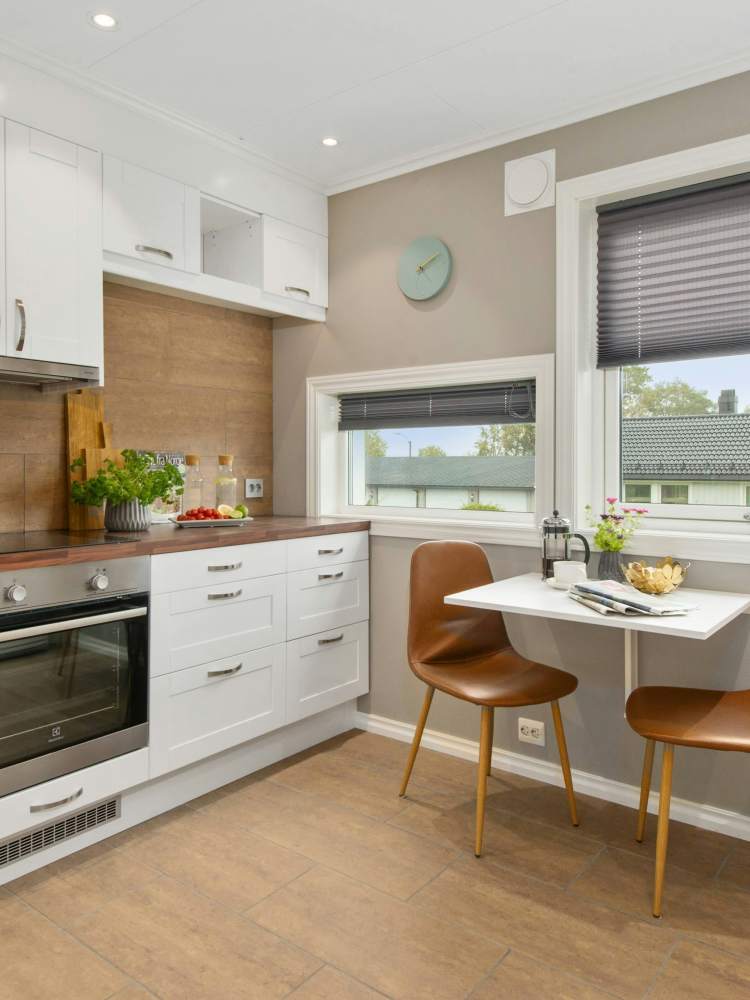The world headquarters of Johnson & Johnson Pharmaceuticals and many other medical care facilities and companies, including Robert Wood Johnson Medical School, and the New Jersey Cancer Institute, are located in New Brunswick, NJ. No wonder its been dubbed The Health Care City.
An energetic city of just over 55,000 residents, New Brunswick, New Jersey often seems busier in the daytime, with corporate and medical employees, and college students and college staff bustling around town. With a popular cultural arts center, stellar medical facilities, and prestigious institutes of higher learning within its boundaries, New Brunswick has plenty to offer its residents in its culturally diverse, vibrant neighborhoods.
Moving to New Brunswick
With so many colleges in town, be sure to keep track of semester breaks when you look for a place to live. Rentals will be harder to come by in the fall, than the summer. Start your apartment search early.Public transportation is excellent both in town and getting out of town. You may not need a car at all living here.
Looking for a town with a substantial corporate and medical job growth, excellent medical care, and significant cultural activities? New Brunswick is your place. And, its conveniently located midway between the cultural megalopolis of New York City and the urban oasis of Philadelphia. Hop on the train and the entire Eastern Seaboard is yours.
Neighborhoods
New Brunswick City Center:Reasonably priced and located close to many major employers, City Centers properties range from small apartment complexes to three bedroom houses for rent. Many of the properties are renter occupied, with the age of buildings ranging from historic time periods prior to 1940, up to 1970. Over sixty percent of residents here do not own a car, and twenty percent actually walk to work. Youll find many residents here employed in manufacturing and labor as well as in management and sales positions.$
Westons Mills / Edgebrook:This middle income community has a dense urban feel, with apartment homes in medium sized single family homes and high rise apartments. Properties range in age from 1940 up to 1999. A low vacancy rate here means the rental market is tight, so if you choose this neighborhood for your apartment rental, be prepared to look early. Many residents drive to work, with a commute time of fifteen minutes. $$
Jersey Ave / How Lane:Also urban in density, this middle income community offers a variety of apartment rental choices from single family homes to complexes. There are also many attractive row houses and town homes. A solid group - 24% - of people who carpool to work live here. This community features a significant Hispanic population, and is family oriented. $$
Raritan Gardens:Residences here range from small apartment buildings to high rises complexes. Many buildings are older, having been built between 1940 and 1999. Many residents are college students - 53%, in fact. If youre looking for a student-centric neighborhood, this is your spot. Cafes, bars, and shops all cater to the student life. $$
Living in New Brunswick
New Brunswick began by Royal charter in 1730, incorporated as a city in 1784. Because of its central location between New York City and Philadelphia, New Brunswick was a major travel and trade hub. Rutgers University, then Queens College, was founded in 1766.Along with Rutgers, which has three campuses in the city, the town hosts the New Brunswick Theological Seminary, the Robert Wood Johnson Medical School, and a campus of Middlesex County College.
New Brunswick houses many well known American companies and colleges. In fact, the town hosts medical giant Johnson & Johnsons world headquarters, corporate giant Bristol-Myers Squibb, the countrys largest medical school, Robert Wood Johnson Medical School and the Robert Wood Johnson University hospital, and Rutgers-The State University of New Jersey.
Travel the World
The Hungarian Heritage Center located in New Brunswick is the only facility of its kind in the U.S. With a museum, library, and archives, the role of those with Hungarian heritage in the U.S. is documented and preserved throughout American history. The archival and museum collectionsbegin with colonial days in this premier exhibit space. In the 1930s, one quarter of the Hungarian population of New Jersey resided in the city - one out of three city residents were Hungarian. Today, youll find no shortage of Hungarian bakeries and goulash recipes in town. The Hungarian Heritage Festival is held the first Saturday in June, annually.
Along with the citys substantial Hungarian population, about 50% of the city is Hispanic, including those with Puerto Rican and Dominican ancestry. Housing and businesses are diverse too: major employers formed a development company to gentrify the downtown area, and consolidate the business community in a central, downtown area. Gateway Tower, a high rise redevelopment project next to the train station, houses apartments, condos, and parking, and is connected to the station via a bridge walkway. Most of New Brunswick's retail businesses are within this designated Urban Enterprise Zone.
New Brunswick residents can take New Jersey Transit and Amtrak trains into Manhattan, Trenton, Newark, and Philadelphia. Local bus service and long distance busses are also easily accessed. With plenty of commuter parking, the town embraces the concept of easy access in and out of the city.And if you must drive, the city is less than a mile from I-95, the New Jersey Turnpike, as well as state routes including the Garden State Parkway.
Get Cultured in New Brunswick
New Brunswick has a little bit of New Yorks Times Square in its veins, with three professional theatrical venues occupying space downtown. The George Street Playhouse, the State Theater which is home to the American Repertory Ballet, and the award winning Crossroads Theater.In addition, Rutgers offers sophisticated student productions. Music is also well patronized - local bars and clubs have spawned national acts like Bon Jovi.
Art and dining dont receive short shrift either. The Jane Voorhees Zimmerli Art Museum at Rutgers University, Albus Cavus, and the Rutgers University Geology Museum showcase world class exhibitions; New Brunswick itself was known from the 1950's through the 70's as a home to avant garde art sometimes called the "New Brunswick School of Painting."
With Italian, Middle Eastern, Ethopian, Hungarian, Thai and Peruvian among the distinctive cuisines in town, residents have plenty of dining options. In a hurry? Check out the Food Trucks at Rutgers University's College Avenue campus. Nicknamed "Grease Trucks" these rolling restaurants serve up a local speciality: "Fat Sandwiches," or subs with multiple ingredients.


